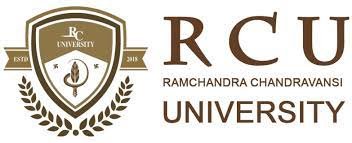The MA admission process typically involves choosing a program, checking eligibility, and preparing application materials like transcripts, letters of recommendation, a statement of purpose, standardized test scores (if required), and a resume.
Admission Process for Master of Arts
The admission process for a Master of Arts (MA) program typically involves submitting an application, academic transcripts, letters of recommendation, a statement of purpose, and, in some cases, standardized test scores like the GRE. Applicants should check the specific requirements of the institution they're applying to. Some programs may also require interviews or writing samples. Meeting application deadlines is crucial, and applicants should ensure they fulfill all prerequisites and eligibility criteria outlined by the institution offering the MA program they are interested in.
1. Research and Selection of Programs
The first step in the MA admission process is to research and select the programs that align with your academic and career goals. Consider factors such as location, faculty expertise, program reputation, and specialization options.
2. Prerequisites and Eligibility
Check the admission requirements for each program you are interested in. Most MA programs require a bachelor's degree in a relevant field, and some may have specific prerequisites or minimum GPA requirements.
3. Prepare Application Materials
Prepare your application materials well in advance. Common documents include:
• Transcripts: Official transcripts from all previous academic institutions.
• Letters of Recommendation: Typically, you'll need 2-3 letters from professors or professionals who can speak to your qualifications.
• Statement of Purpose: A personal statement explaining your academic and career goals, why you're interested in the program, and what you can contribute.
• Resume/CV: Highlight your relevant experiences, including internships, research, and work.
• Standardized Tests: Some programs require GRE, TOEFL, or IELTS scores for international students.
4. Financial Planning
Consider your financial situation and explore funding options. This could include scholarships, assistantships, grants, or loans. Research the cost of tuition, living expenses, and potential sources of financial support.
5. Application Submission
Submit your application through the university's online application portal. Pay attention to deadlines, as late applications may not be considered. Application fees may apply, so budget accordingly.
6. Interviews
Some programs may require interviews as part of the admission process. Be prepared to discuss your qualifications, goals, and reasons for choosing the program.
7. Admission Decision
Universities typically review applications holistically, considering academic records, letters of recommendation, test scores, and your fit with the program. Admission decisions are usually communicated via email or postal mail.
8. Financial Aid Application
If you're seeking financial aid, submit the required documents and applications by the specified deadlines. This may include the Free Application for Federal Student Aid (FAFSA) or institution-specific forms.
9. Acceptance and Enrollment
Upon receiving an admission offer, carefully review the terms and conditions. If you decide to accept, follow the enrollment instructions, which often include submitting a deposit to secure your spot.
10. Visa and Immigration
International students should begin the visa application process after acceptance. Consult the university's international student office for guidance on obtaining the necessary visas and complying with immigration requirements.
11. Orientation and Advising
Attend orientation sessions offered by the university to familiarize yourself with campus resources, academic requirements, and support services. Meet with an academic advisor to plan your course of study.
12. Register for Classes
Register for your MA program courses according to the university's schedule. Be mindful of prerequisites and any required core courses.
13. Housing and Living Arrangements
Secure housing arrangements if you plan to live on or off campus. Consider your budget and proximity to the university.
14. Start of Classes
Attend the first day of classes and participate actively in your courses. Make use of office hours to connect with professors and seek academic support if needed.
15. Academic Performance and Graduation
Maintain good academic standing throughout the program. Fulfill degree requirements, including coursework, research, and comprehensive exams if necessary. Apply for graduation according to university guidelines.
 2 Years
2 Years
 Post Graduate
Post Graduate
 Arts
Arts
 Full Time
Full Time





















 back
back